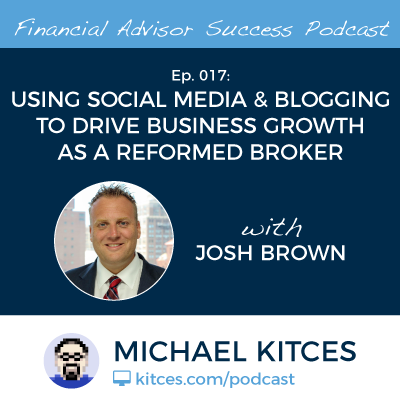Enjoy the current installment of "weekend reading for financial planners" – this week's edition kicks off with the big news that TD Ameritrade has struck a deal with DFA that will cut transaction costs for DFA mutual funds by as much as 67% (down to $9.99/trade), potentially setting off a new pricing war with the other RIA custodians when it comes to asset managers that refuse to pay sub-TA and other revenue-sharing fees back to the platforms.
From there, we have several articles about marketing, including a look at what you should (and shouldn't) be measuring for success when engaging in social media, how a face-to-face request can be 34 times more effective than just sending an email (though with the ability to send a high volume of emails, the latter can still be more productive in certain situations!), and when it makes sense to try to publish a book as a financial advisor (hint: don't do it for the book sales, do it for the credibility it gives you to attract more clients, and get a ghost writer to help you put your thoughts down on paper if necessary).
We also have a number of practice management articles this week, focused around the theme of attracting and retaining next generation talent, including: how advisory firms are starting to formalize their career tracks as a way to compete for young talent, why having clearly written job descriptions (including criteria for advancement) are crucial to become an "employer of choice", why it matters that you formally write down your business' "core values" (and how to get started), why attracting and retaining next generation talent is essential to build an enduring business that has transferable value, and some tips for next generation advisors looking to buy into an advisory firm (and how to think about the risk of doing so).
We wrap up with three interesting articles, all around the theme of personal and professional change: the first is a look at how a key role of the financial planner is helping clients to change and adapt to an uncertain future, but our own role as financial planners is changing as the nature of money itself continues to change and evolve; the second is a look at a financial advisor who was struggling with a near-failing advisory firm, and ultimately went through a process of deep self-reflection to figure out what it would take to turn it around (including a hard look at whether he really wanted to be a business owner or not, and how much income he really wanted and needed to feel successful); and the last is a fascinating look at how the Great Depression was one of the nation's darkest and most stressful times, but also a period of tremendous productivity growth and invention, which helps to serve as a reminder that while it's not always fun to feel stressed, it's actually the stress that helps to drive us forward to achieve the things that ultimately help to bring financial success... and personal happiness, too. (So if you are wishing your life was less stressful... be careful what you wish for!)
Enjoy the "light" reading!

 Welcome back to the seventeenth episode of the Financial Advisor Success podcast!
Welcome back to the seventeenth episode of the Financial Advisor Success podcast! Welcome back to the sixteenth episode of the Financial Advisor Success podcast!
Welcome back to the sixteenth episode of the Financial Advisor Success podcast!
